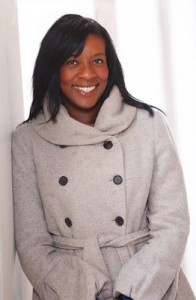Shortlisting: What do I look for in an application?
I’ve been shortlisting JDF applications for around five years now and I rip open my envelope of applications with excitement when I get them in the post.
 By Marverine Cole
By Marverine Cole
I’ve been shortlisting JDF applications for around five years now and I rip open my envelope of applications with excitement when I get them in the post. It might sound perverse but I look forward to spotting mistakes and digging around for an applicant’s enthusiasm.
The first thing I do is flick through the application form to check that all sections have been filled out as requested, that nothing is left out, because that says to me, the candidate was in a rush and/or they don’t care much about the importance of their application. It does make me angry that some forms seem to have been filled out in a slapdash nature, and it doesn’t make sense. Why wouldn’t someone take care over a form which essentially could be a life-changing moment for them? Especially when a bursary is the difference between taking the right step into their job of their dreams and not.
The same goes for silly and unnecessary mistakes when it comes to both grammar and spelling. I get so annoyed by that – especially when spellcheck is freely available, as should be a spare pair of eyes (a friend or family member to read it through for you to check everything makes sense).
I do however forgive one thing – use of correct terminology and journalese (using exaggerated descriptions and clichés). I forget that not everyone will have had vast amounts of work experience in which time to hone those skills. I have to keep reminding myself that I’m not reviewing another journalist’s work, and that these are applications for bursaries for people at the start of their journalistic careers! As long as everything doesn’t read like it’s written for the front page of a generic tabloid, I’ll let it go just this once.
But what you absolutely cannot compromise on is out-and-out passion for the profession. You have to be able to show me that you care enough about journalism to have sought out some meaningful work experience. That’s been long-term (more than 1 or 2 days popping into a BBC newsroom), that you’ve seen different newsrooms for a number of weeks or months, I want to see that you’ve got by-lines on a blog, that you’ve made a difference in a newsroom, so much so you have a glowing reference from one of the editors you’ve worked with.
Because if your will, your want, your desire doesn’t jump out at me on that form, I’m not shortlisting you. The same goes for your explanation of WHY you consider yourself to be diverse. You need to be able to swiftly articulate why you need to be working in journalism. Think about what makes you different? Why you want to work in an industry that can make a difference to people’s lives, and what sort of journalism you think you’d be best suited to? It’s about how you articulate the way in which your unique view or perspective on the world is not being shared and how you propose to highlight that in your work and WHY you feel the need to be heard. Again I’ve read too many answers in this section that have not satisfied me: it’s very clear when someone’s applying for the sake of it and their answer is wishy-washy, or has no conviction. Take the time to think about who you are, where you’re from, your specific aims and ambition in life, and the changes you think you can bring about by being a journalist. Write it, rewrite it, get someone else’s view on it and then crack on with that application form!
GOOD LUCK!
—
Marverine Cole is an award-winning journalist, TV presenter and media career mentor. You can find her on her site here, and on Twitter @TVMarv.

